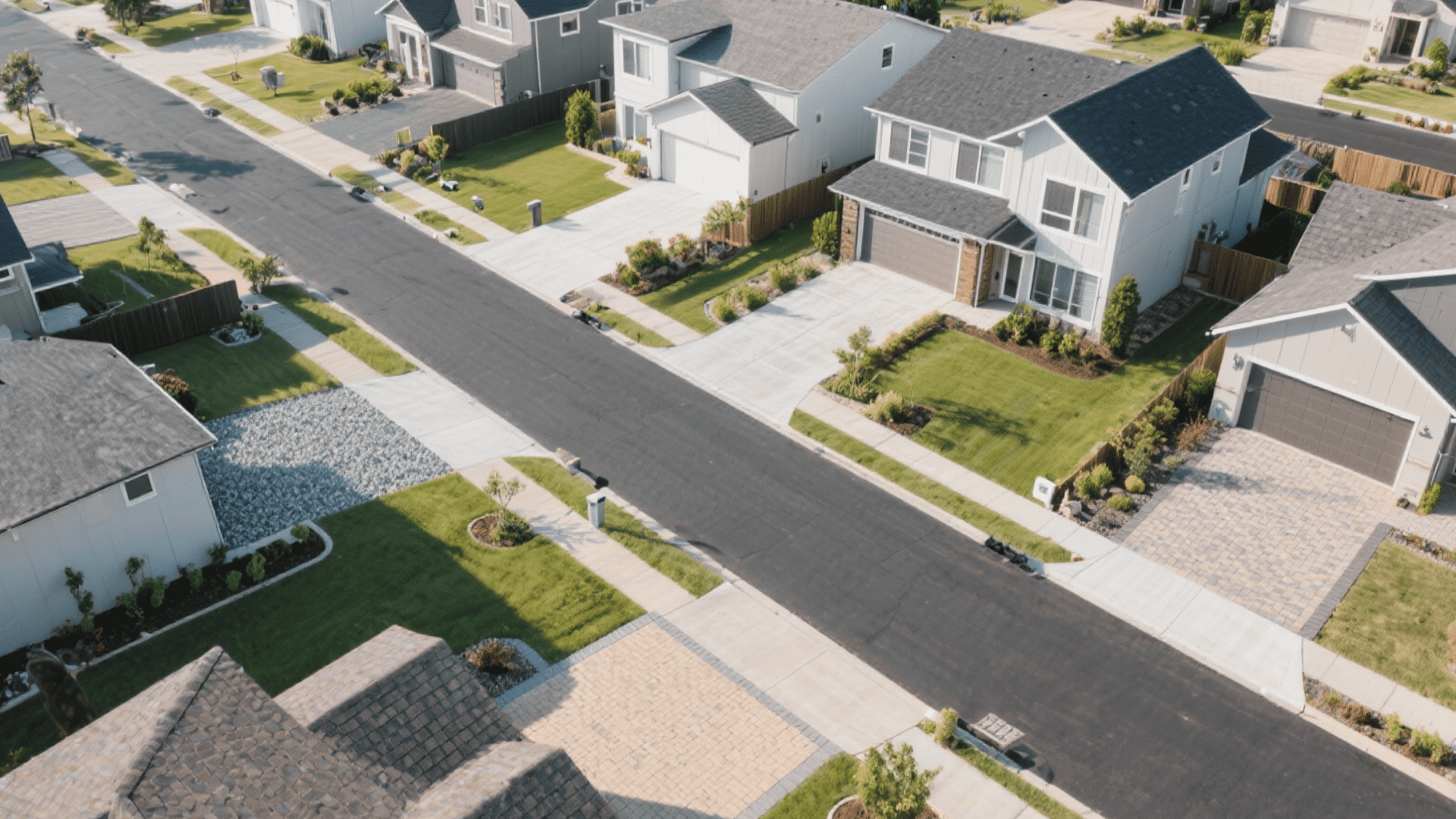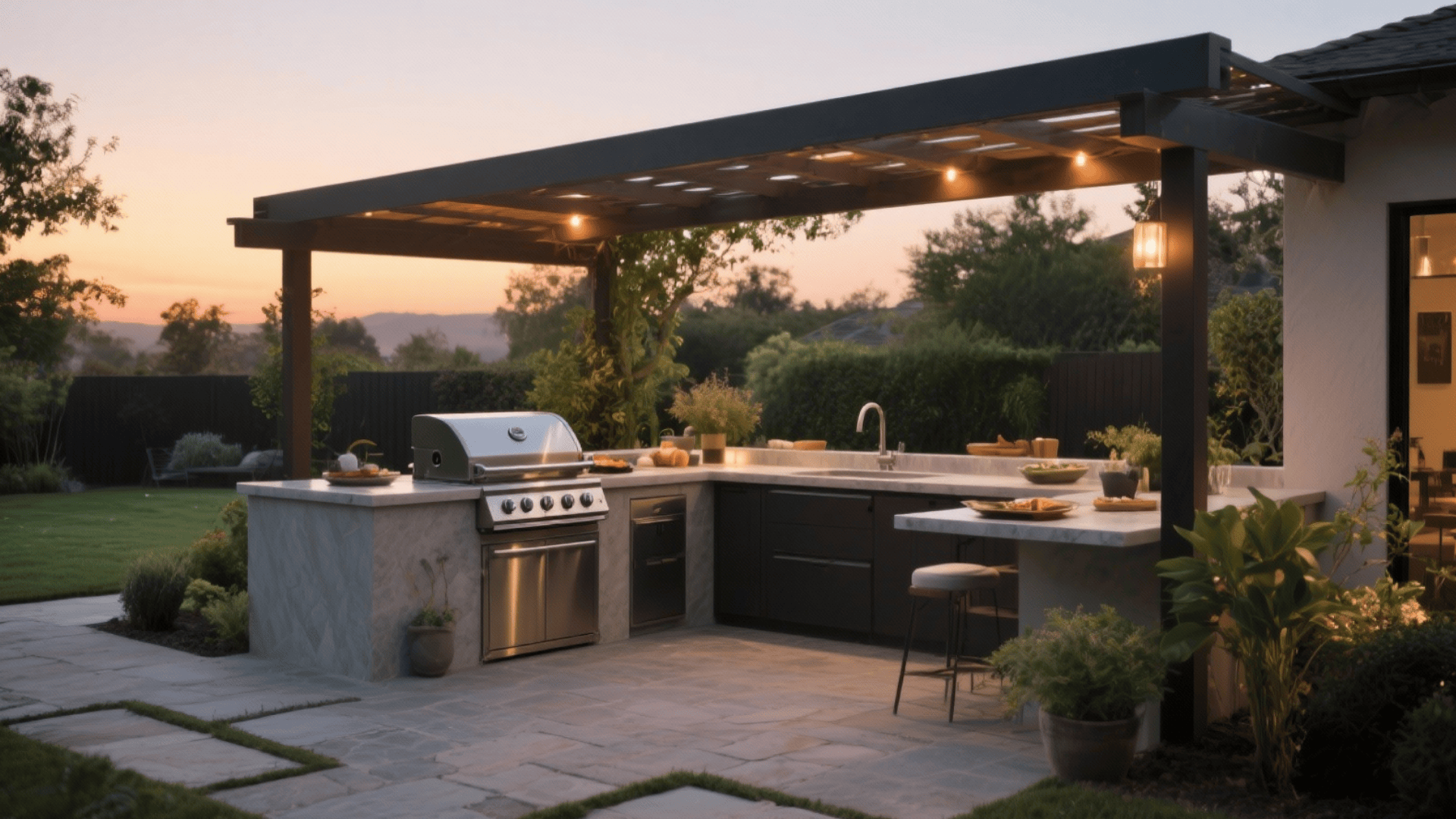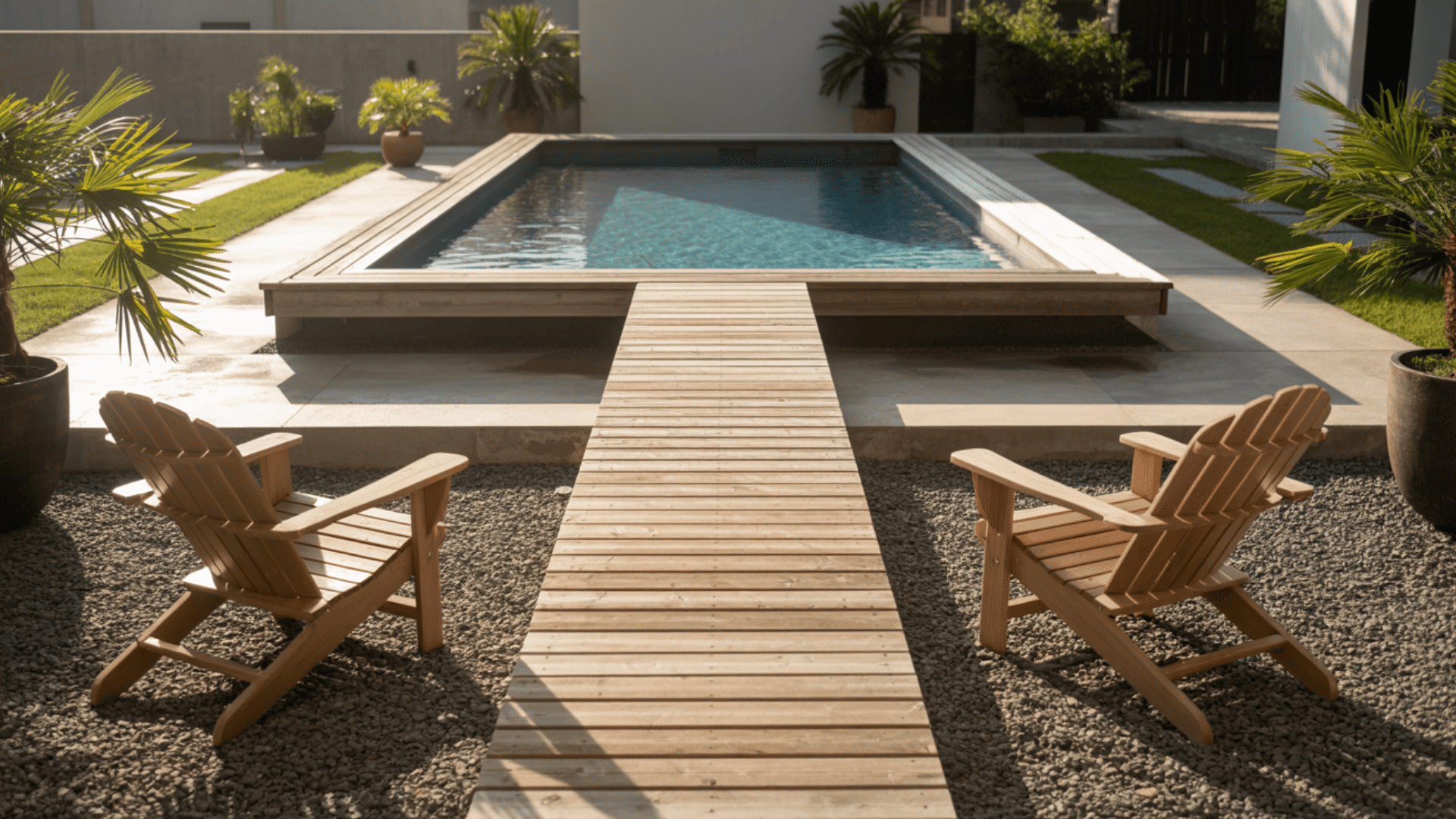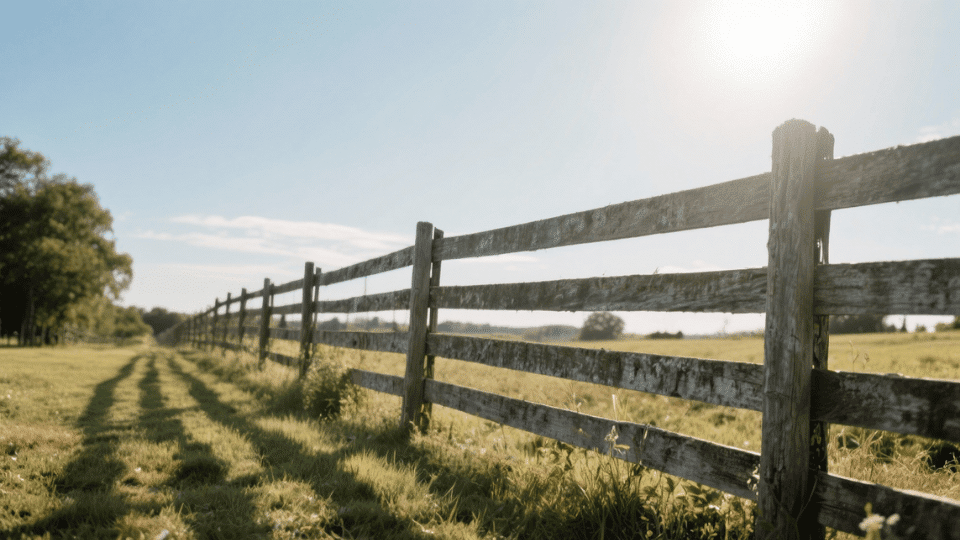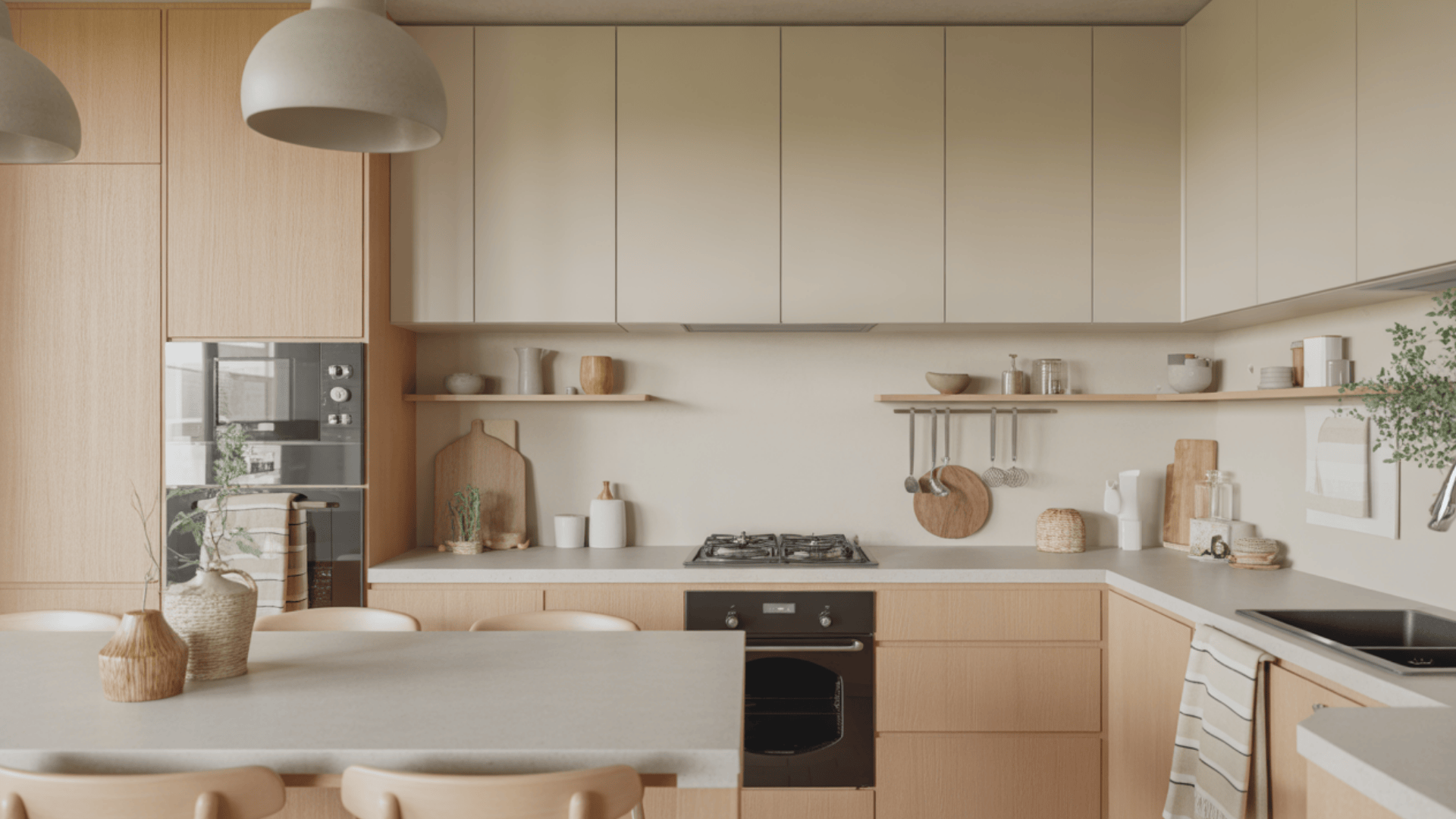Your driveway isn’t just a place to park; it’s one of the first things people notice around your home. But with so many options available, choosing the right one can feel overwhelming.
Should you go with classic concrete or opt for something more eye-catching, like pavers? Each driveway material comes with its own set of benefits and drawbacks, not to mention varying price points.
In this blog, I will discuss popular types of driveways to help you make an informed decision. You’ll learn what works best for your climate, budget, and exquisite preferences.
Factors to Consider Before Choosing Driveway Surface Material
When comparing different types of driveways, I realized the right choice goes beyond appearance; these factors beforehand will help you choose the ideal surface for your space.
- Budget and Usage: Match spending to usage frequency and vehicle load
- Climate and Location: Choose materials suited to local weather and terrain
- Base and Drainage: Ensure a solid foundation to prevent cracks or sinking
- Maintenance: Pick a surface that matches your comfort level with upkeep
- Style Fit: Complement your home’s architecture and surroundings
- Long-Term Cost: Consider maintenance and repair expenses over time
- Environmental Rules: Check local drainage and permeability guidelines
Best Types of Driveways for Every Home and Budget
Here are the most popular types of driveway options available today. Each material brings something different to the table, so understanding their strengths and limitations will help you make the right choice for your home.
1. Gravel Driveway
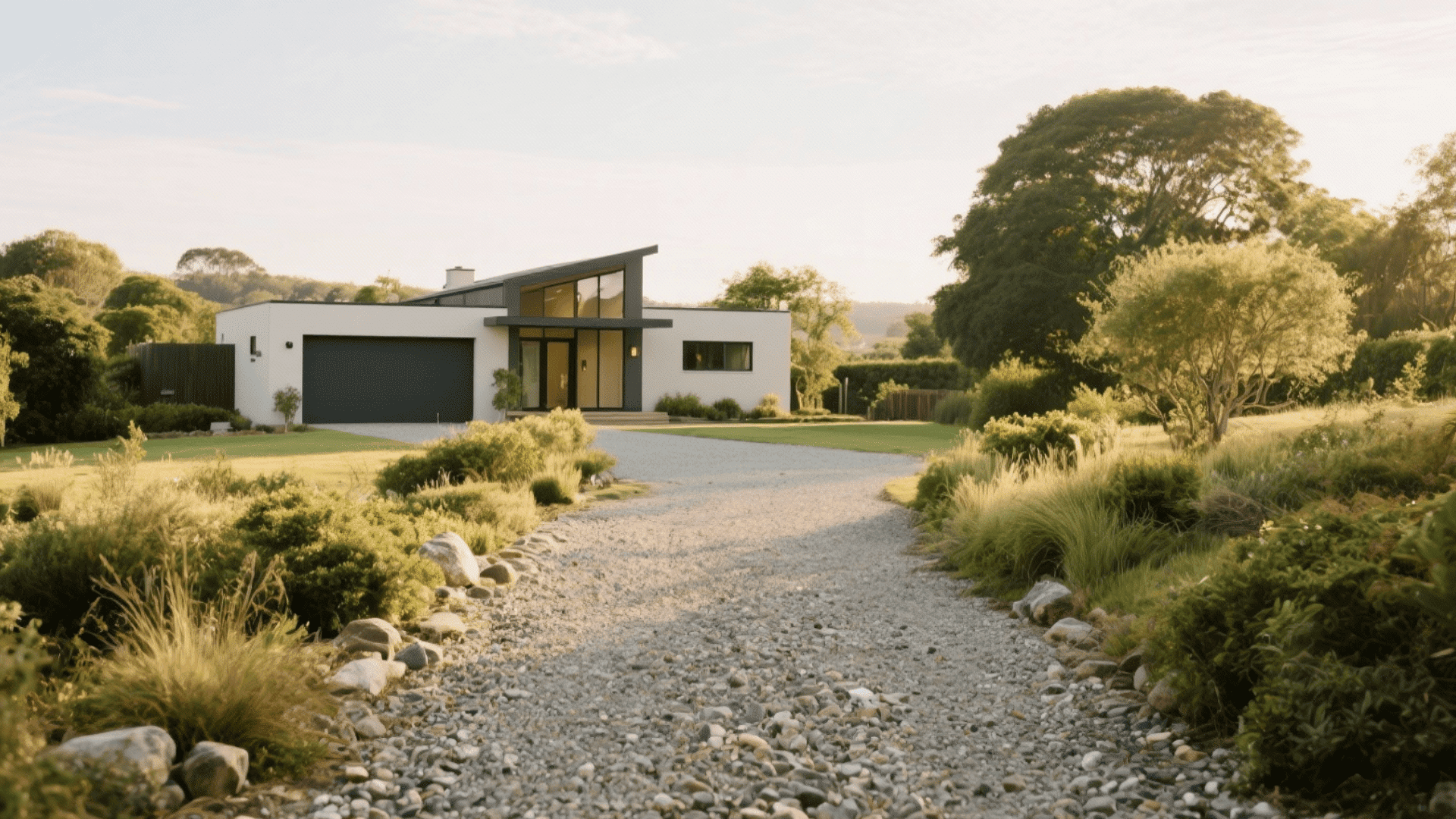
A gravel driveway is created by laying a compacted base layer, then spreading and leveling crushed stone or pea gravel on top. It’s one of the simplest installations and can be done over a weekend with the right preparation.
- Pros: Cost-effective installation, Excellent drainage, and Rustic charm
- Cons: High maintenance, Informal appearance, and Slope challenges
- Cost: Budget-friendly range; typically $1–$3 per square foot installed
2. Asphalt (Tarmac) Driveway
Asphalt driveways are installed by heating the asphalt mix and rolling it over a prepared gravel base. The process is quick, and you can usually drive on it within a day or two after installation.
- Pros: Quick installation, smooth surface, and heavy-use durability
- Cons: Limited design options, heat absorption, and regular resealing needed
- Cost: Mid-range pricing; generally $6– $9 per square foot, depending on thickness and location
3. Concrete (Plain) Driveway
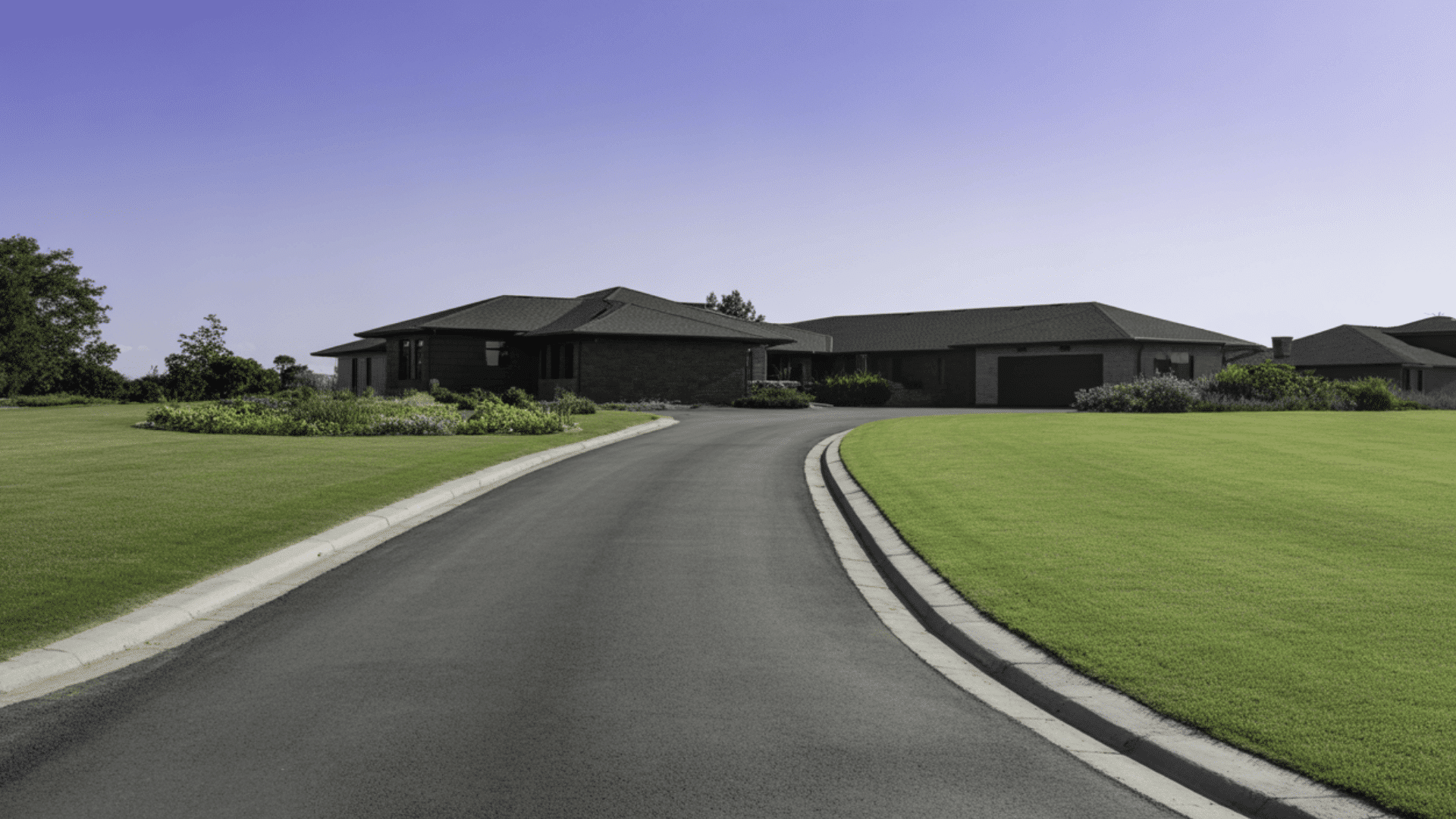

Plain concrete driveways are poured over a prepared base and allowed to cure for several days. The result is a solid, uniform surface that’s built to last decades with minimal upkeep.
- Pros: Exceptional durability, low maintenance, and heavy vehicle support
- Cons: Cracking potential, limited aesthetics, and difficult repairs
- Cost: Moderate investment; typically $6– $15 per square foot for standard gray concrete
4. Block Paving (Interlocking Pavers) Driveway
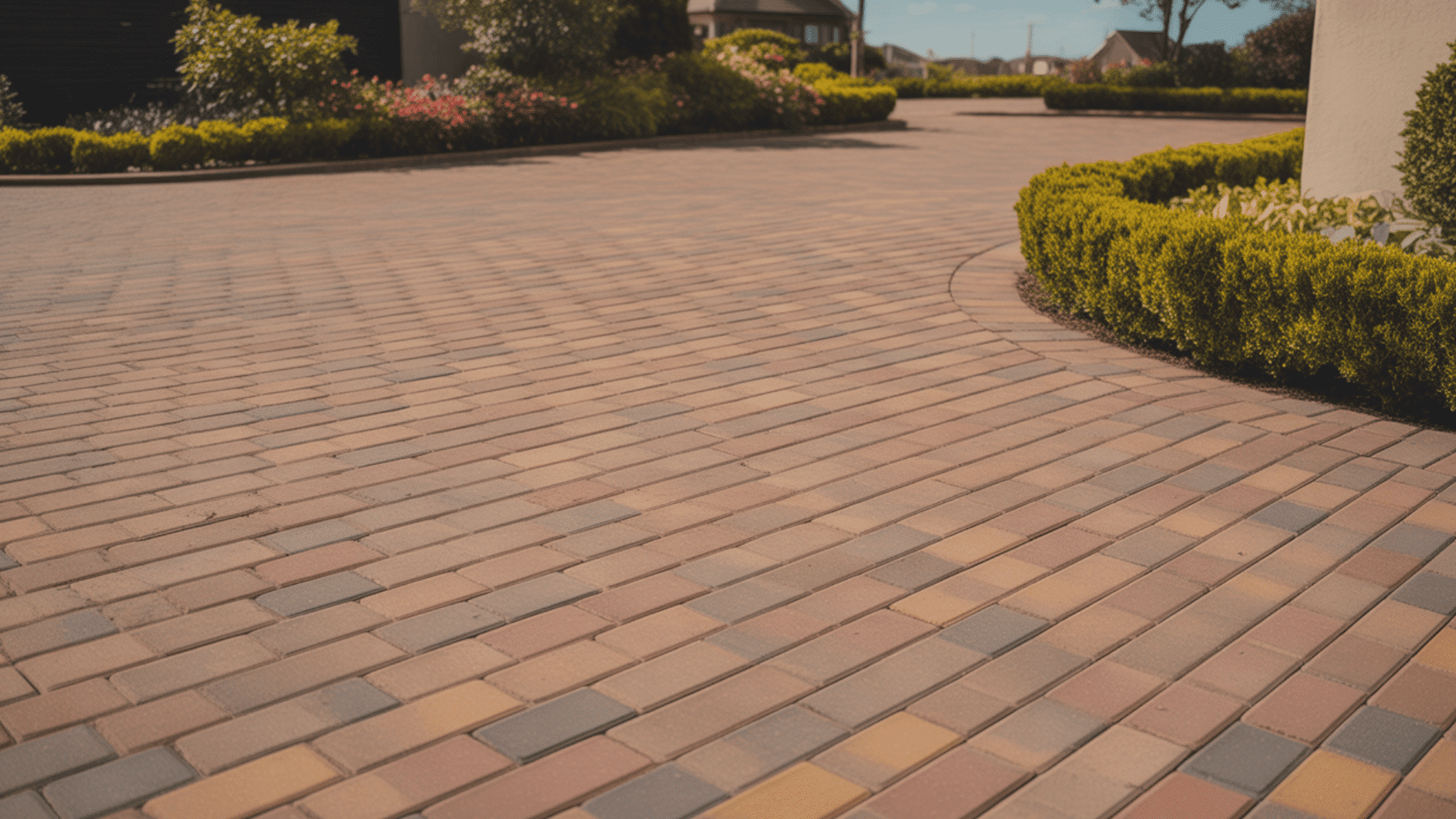
Block paving uses individual concrete or clay pavers laid in patterns over a sand base. The interlocking design distributes weight evenly and allows for creative patterns and color combinations.
- Pros: Design flexibility, easy repairs, and long-lasting appeal
- Cons: Higher labor costs, weed growth, and regular cleaning
- Cost: Premium pricing; usually $10– $30 per square foot, depending on paver quality
5. Resin-Bonded Surface Driveway
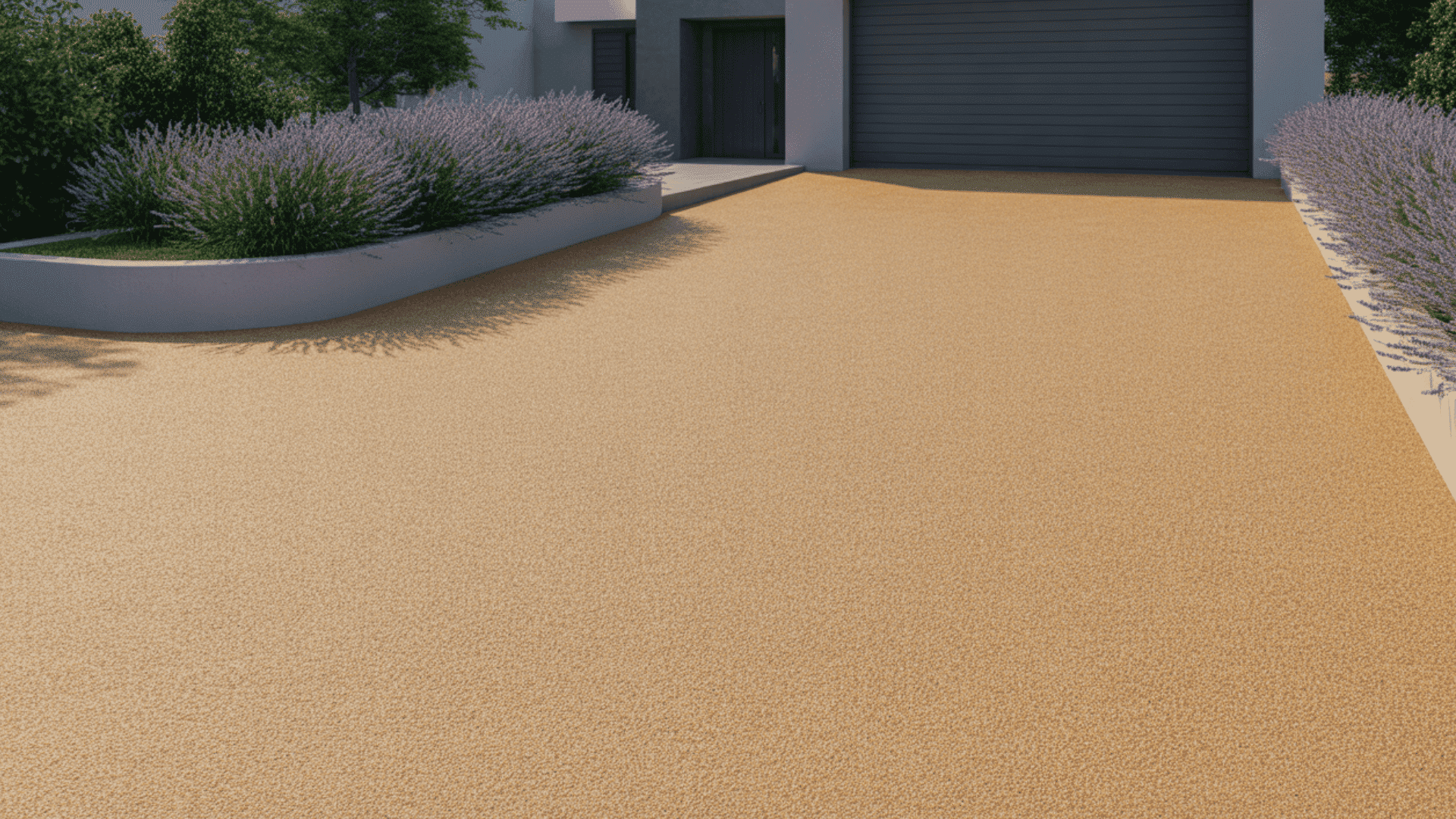
Resin driveways mix natural aggregates with clear resin to create a smooth, permeable surface. The mixture is troweled onto a prepared base, creating a seamless finish that’s both functional and attractive.
- Pros: Superior permeability, extensive color range, and modern aesthetic
- Cons: High upfront investment, professional installation required, and UV sensitivity
- Cost: Premium range; typically $11– $17 per square foot for quality installation
6. Natural Stone Driveway
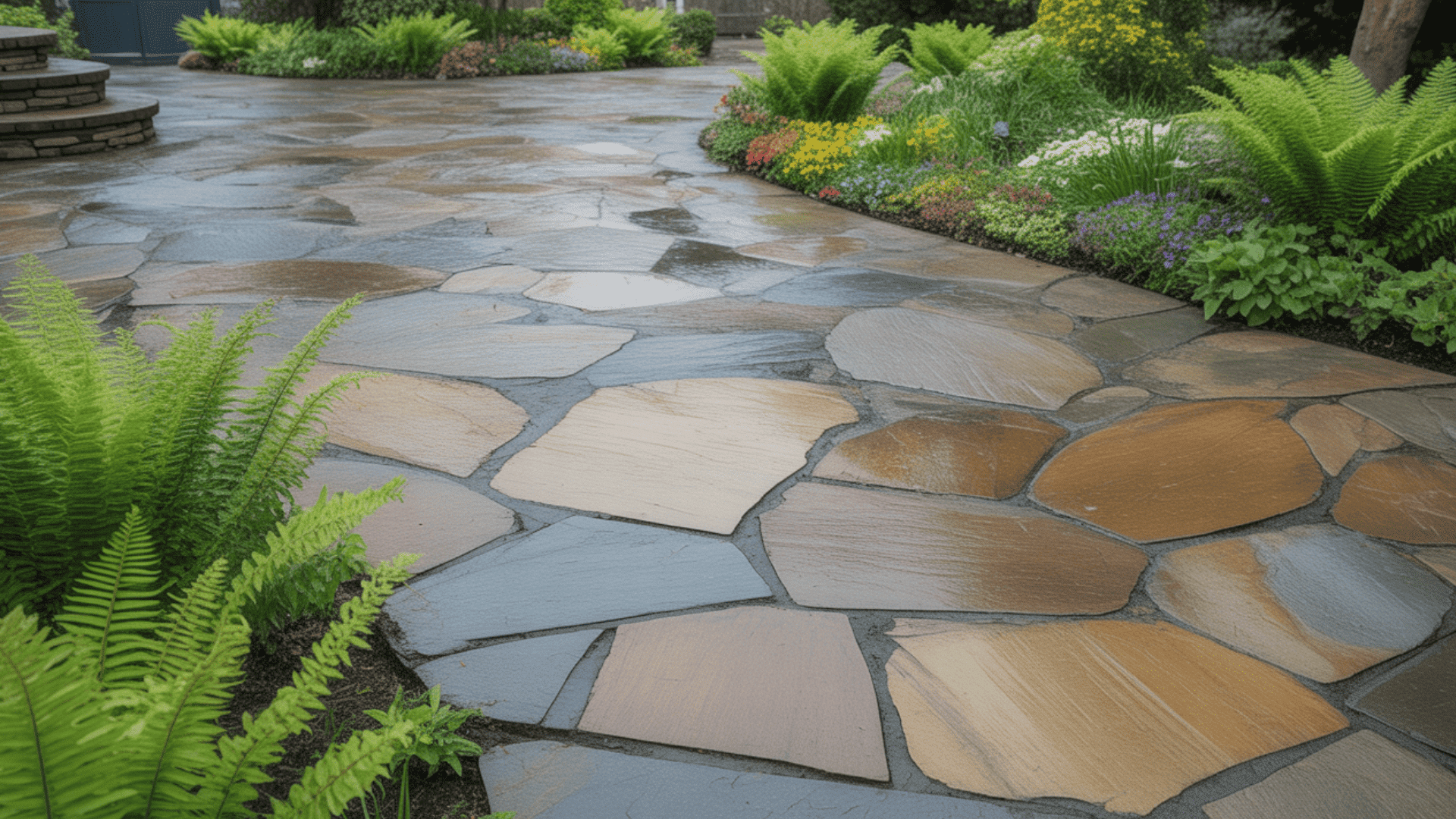
Natural stone driveways use quarried stone slabs laid individually on a sand or mortar base. Each stone is unique, creating an organic, high-end appearance that’s hard to replicate with manufactured materials.
- Pros: Luxurious appearance, extreme durability, and unique character
- Cons: Highest cost, labor-intensive installation, and maintenance demands
- Cost: Top-tier investment; ranges from $23–$31+ per square foot, depending on stone type
7. Imprinted or Stamped Concrete Driveway
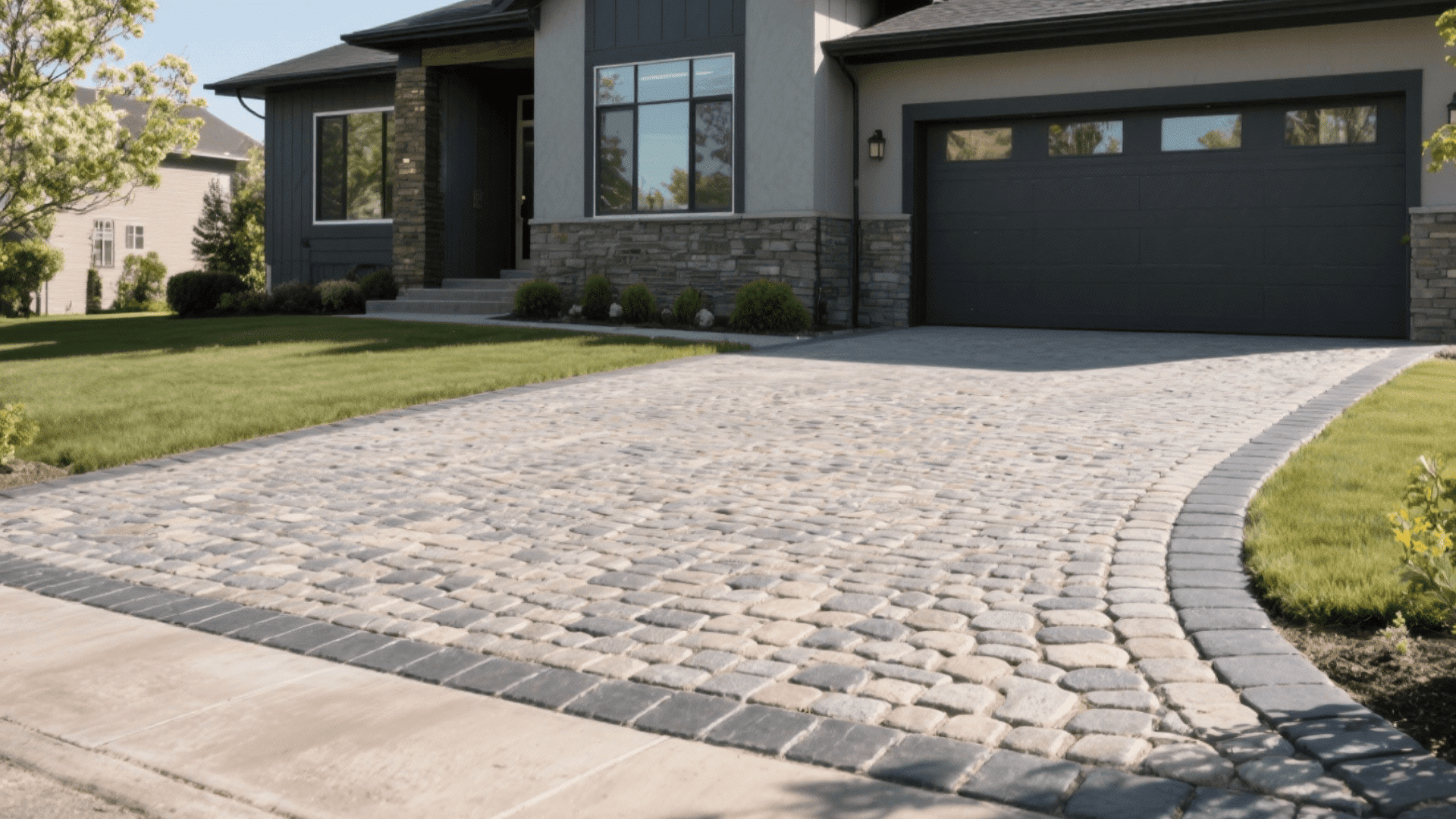
Stamped concrete involves pouring standard concrete, then pressing patterns and textures into the surface before it fully cures.
Color is often added to mimic the look of stone, brick, or other premium materials at a lower cost.
- Pros: Decorative finish, faster installation, and unified surface
- Cons: Cracking risk, pattern wear, and repair difficulty
- Cost: Mid-to-high range; generally $8–$19 per square foot with coloring and stamping
8. Permeable/Grass Reinforced Paving Driveway
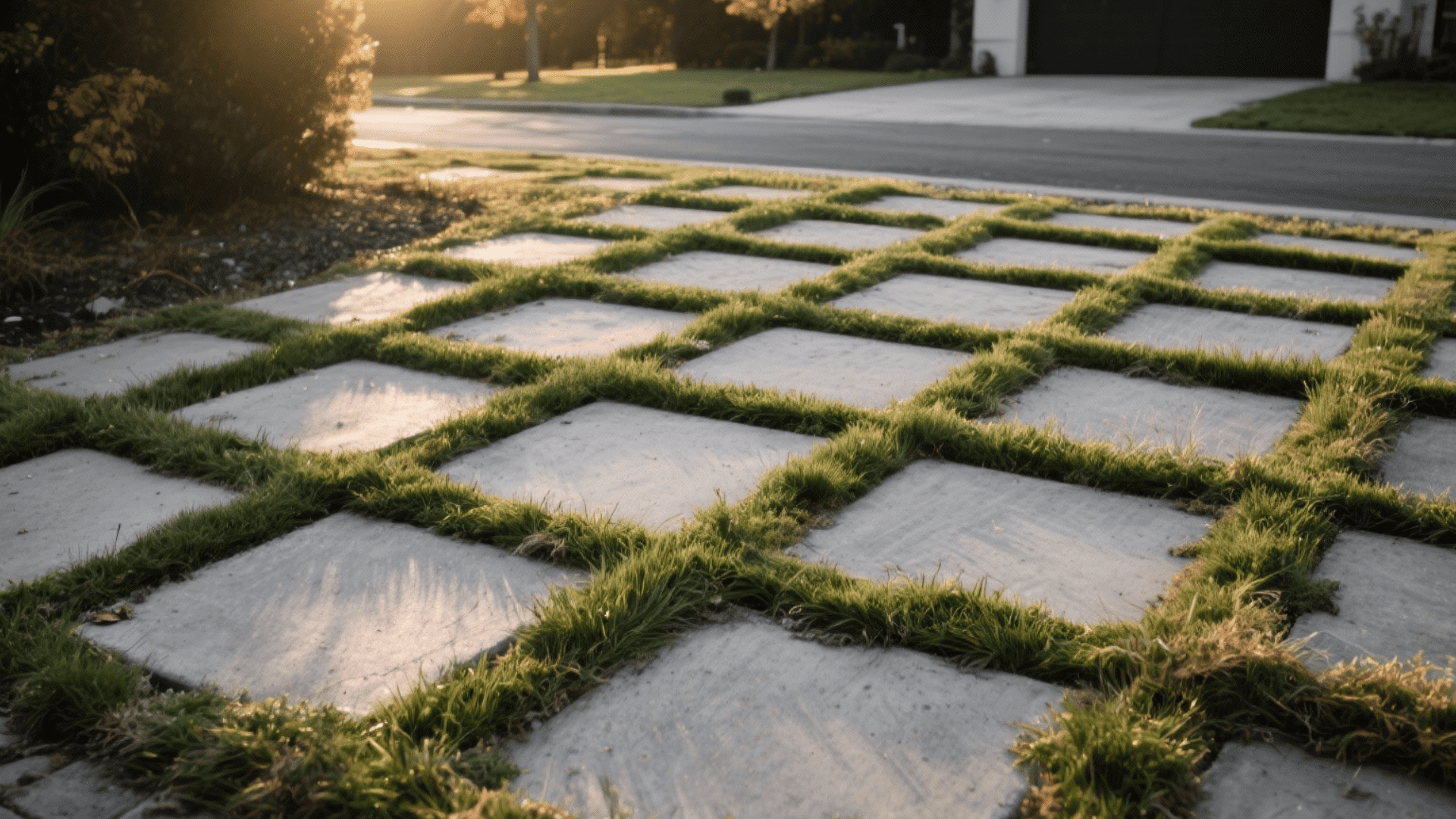
Grass-reinforced paving uses plastic or concrete grids filled with soil and grass seed. The grid provides structural support while allowing grass to grow through, blending functionality with green space.
- Pros: Environmentally friendly, green aesthetic, and reduced runoff
- Cons: Limited heavy use, installation complexity, and grass maintenance
- Cost: Variable pricing; typically $5–$15 per square foot, depending on grid type and finish
9. Cobblestone/Setts Driveway
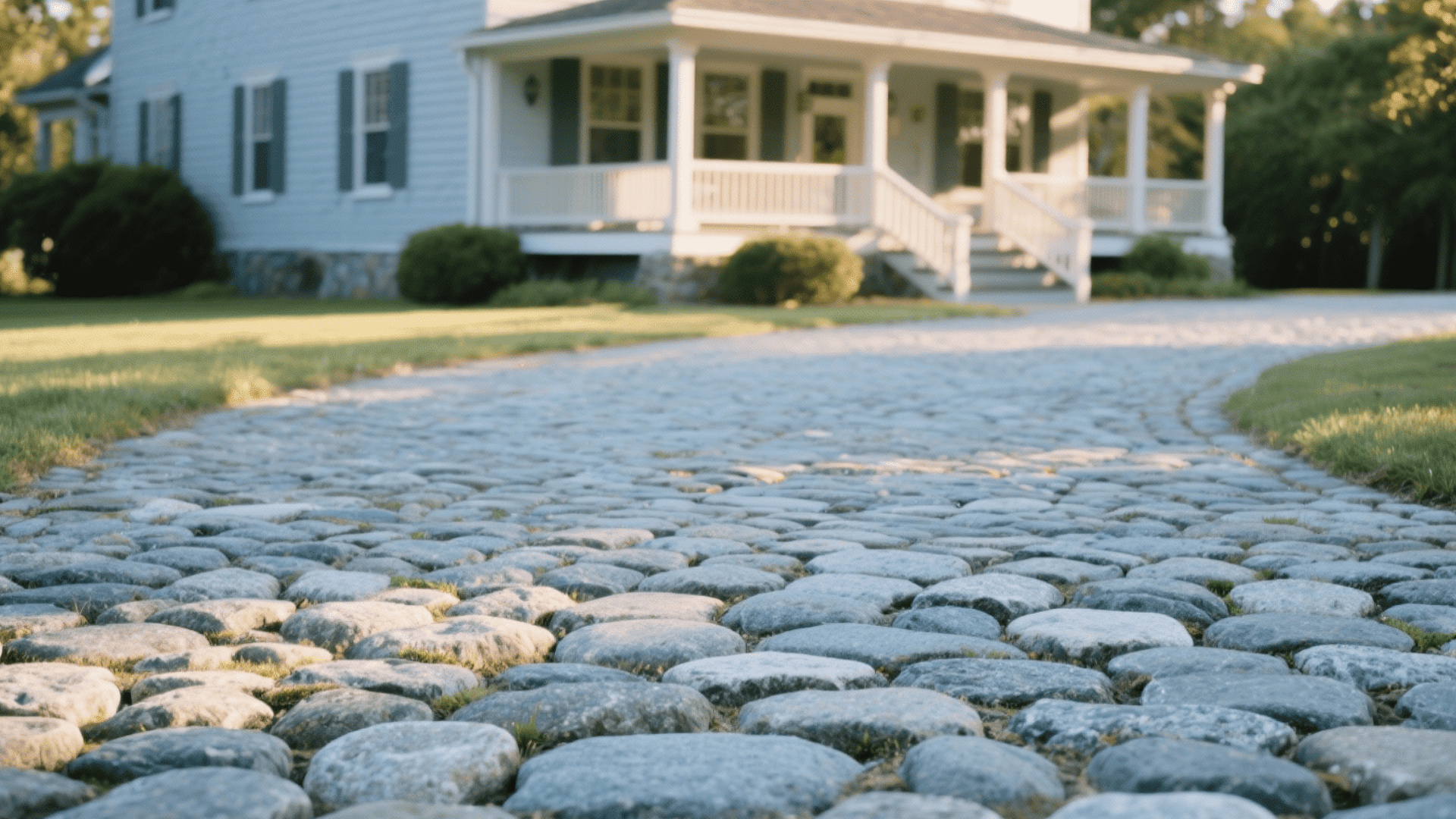
Cobblestone driveways use small, rounded natural stones or cut granite setts laid in sand or mortar. This traditional European style creates an ageless, historic look that’s incredibly durable.
- Pros: Evergreen charm, exceptional durability, and high property value
- Cons: Very expensive, uneven surface, and installation expertise required
- Cost: Premium investment; ranges from $20– $40+ per square foot installed
10. Brick Paving Driveway
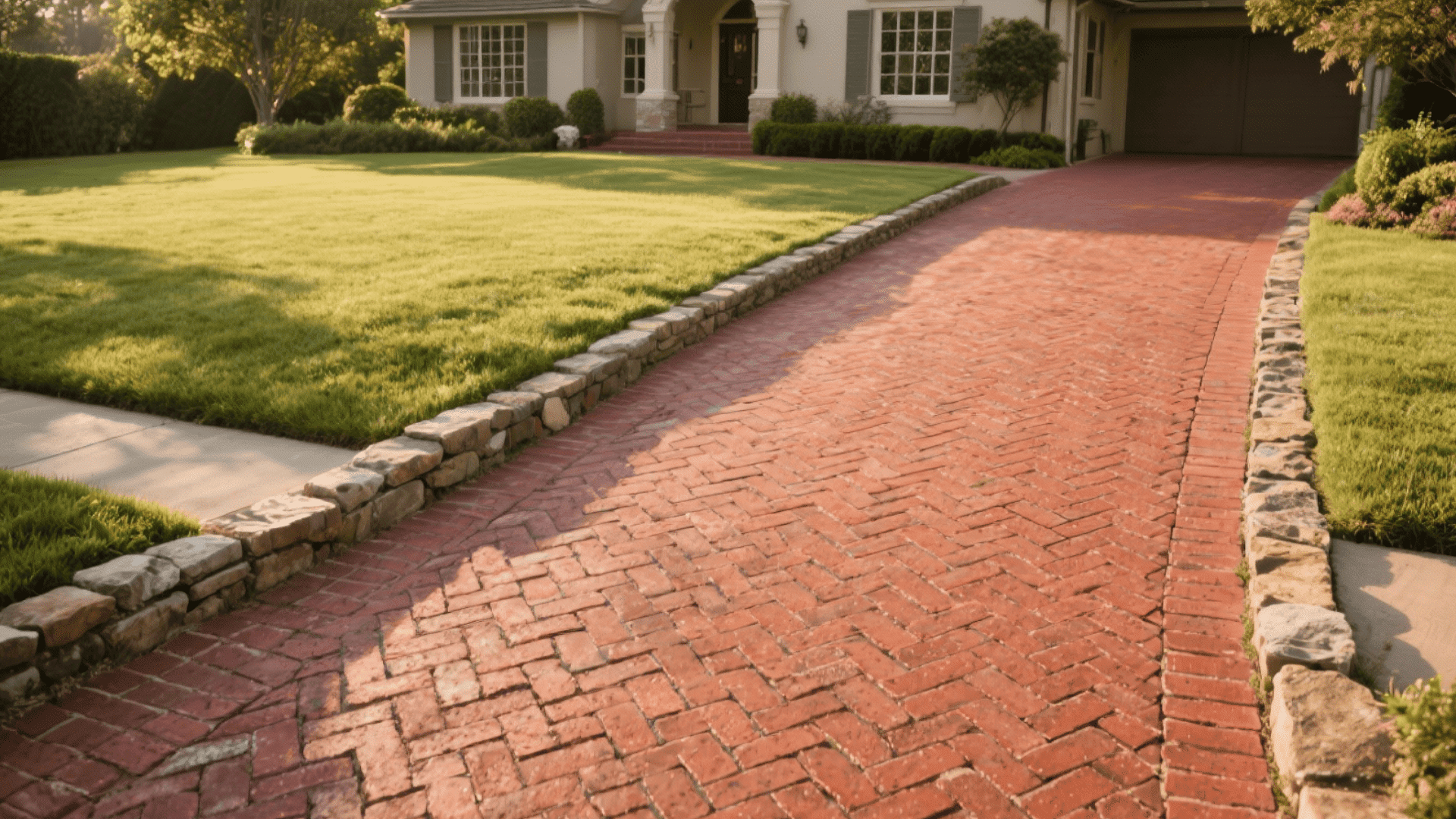
Brick paving uses clay bricks laid in various patterns, like herringbone or basket weave, over a sand base. It’s a traditional choice that complements period homes and adds warmth to any property.
- Pros: Traditional charm, pattern variety, and period home compatibility
- Cons: Color fading, maintenance needs, and moderate to high cost
- Cost: Mid-to-high range; typically $10–$30 per square foot for quality clay bricks
11. Tar and Chip Seal Driveway

Tar-and-chip driveways are created by applying hot liquid asphalt and immediately covering it with loose stone chips. The stones are then rolled into the tar, creating a textured, rural-style surface.
- Pros: Economical option, textured finish
- Cons: Lower finish quality, loose chip scatter, and limited design flexibility
- Cost: Budget-friendly; generally $2–$5 per square foot installed]
Maintenance Tips to Keep Your Driveway Looking New
No matter which material you choose, maintaining your driveway properly will keep it looking fresh and extend its lifespan. Here are some pro tips.
- Clean your driveway regularly by sweeping away debris, leaves, and dirt. Use a hose or pressure washer to remove stains and buildup, which prevents surface damage and discoloration over time.
- Apply a quality sealant every few years to protect your driveway from weather damage, UV rays, and chemical spills. This extends its lifespan and keeps it looking fresh.
- Repair small cracks as soon as you notice them by using an appropriate filler. This prevents water from seeping in, which can cause further cracking and more expensive repairs later.
- Quickly clean oil, grease, and organic stains such as leaves to avoid permanent marks. Use cleaners or degreasers designed for your driveway material to maintain its appearance.
- Make sure drainage is managed properly by keeping edges clear and ensuring the driveway is graded well. This prevents water pooling, erosion, and damage to the surface and base.
Common Driveway Installation Mistakes to Avoid
| Common Mistake | Cause | Consequence | How to Avoid |
|---|---|---|---|
| Improper soil and base preparation | Inadequate compaction, not removing topsoil | Cracking, sinking, uneven surface | Remove organic topsoil, test and compact soil thoroughly |
| Ignoring proper drainage | Poor slope or no drainage plan | Water pooling, erosion, and foundation damage | Design a correct slope away from the home, and install adequate drains |
| Choosing wrong or low-quality materials | Budget cuts or lack of research | Premature wear, cracking, costly repairs | Select materials suited to the climate and expected use |
| Poor workmanship | Hiring inexperienced contractors | Uneven surfaces, aesthetic flaws | Hire qualified, experienced installers |
| Rushing concrete curing | Skipping adequate curing time | Cracks, weakened surface | Allow full curing time before use |
| Skipping permits and regulations | Ignoring local building codes | Fines, forced reconstruction | Obtain all required permits and follow codes |
| Neglecting planning and design | Lack of proper layout and foresight | Functional issues, reduced curb appeal | Plan thoroughly, consider future needs, and design elements |
Key Takeaways
Now that you understand the different types of driveways and how they compare, I’m confident you’re in a much better position to make an informed decision that fits your home and lifestyle.
When choosing the best driveway surface material, be sure to consider your budget, climate, and how heavily you’ll use the driveway.
I recommend you take your time with this important choice and not rush it. Getting multiple professional quotes and visiting showrooms will help you ask the right questions.

